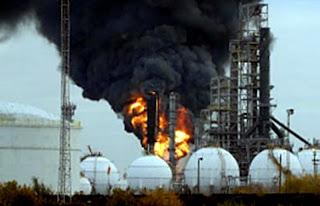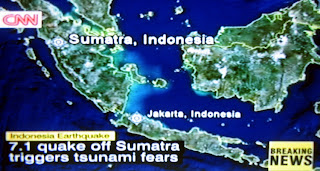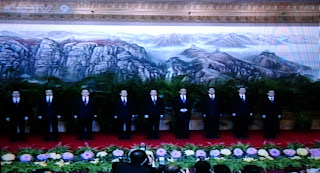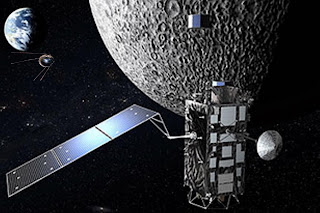
Al Gore along with a number of other climate change scientists has been awarded the
Nobel Peace Prize 2007. The author of the
Inconvenient Truth said he was “honoured” to have been given the prize. But there has been a mixed reaction to the joint award. Dr Saleemul Huq, a UN Climate Change Panel expert, said Al Gore had given the Global Warming argument credibility, despite criticisms of the film.
Meanwhile Nigel Calder, writer and sceptic said, “The globe has not warmed since 1998, they don’t tell you that, do they?” Whilst at the same time plugging his book, The Chilling Stars, Mr Calder said, “Science is about debate, but climate warming has stopped”.
“I’m altogether on economising on fuel, but it’s not going to affect climate change”. However he conceded, “We need to keep on monitoring”.
Whatever the case for what may be causing a change in the climate there are signs that the world is seeing dramatic shifts in weather patterns and the loss of natural habitats of creatures such as the polar bear.
Tonight Al Gore spoke of his being given the Nobel Peace Prize. Standing in a packed conference in California, the former Presidential candidate said, “It is the most dangerous challenge we have faced” and gave several sound-bites which will no doubt be repeated in tomorrows press. There was an “Accelerated melting of the polar ice cap”, he said at the Alliance for Climate Protection meeting. The environmental campaigner said the award would help in “speeding up the change in awareness”.
“This is a planetary emergency” and “we must change the world’s conscience” he added before thanking the IPCC and the Nobel Prize Committee.
Al Gore’s award was the main headline on
Sky News, which throughout the afternoon brought viewers interviews with sceptics and protagonists of the global warming debate.
CNN also covered the story extensively. The
BBC placed the item after the postal strikes currently disrupting deliveries of letters in the UK. It was 10 minutes into
Channel Four News report before the story was covered. Their main stories were the postal strike and the continuing farming crises of Blue Tongue Disease and Foot & Mouth disease.
Al Gore joins the ranks of a number of notable figures also given the Nobal Peace Prize. President Roosevelt, Mother Teresa, former Russian President Mikhail Gorbachev, Desmond Tutu and the Dalai Lama have all received the award for their work in promoting peace. And there has been criticism of the award being handed to Al Gore with many saying he did not deserve the prize [
Channel 4 News]. Many ask what climate change has got to do with peace.
It won’t however be the first controversial award of the high profile award. There have been many exclusions as well as contentious inclusions in the past [
controversies. It’s a debate that will go on and on, along with the debate on climate change.














